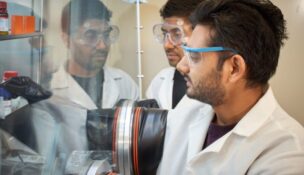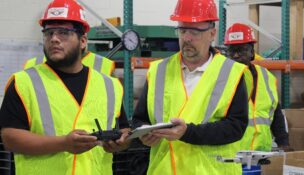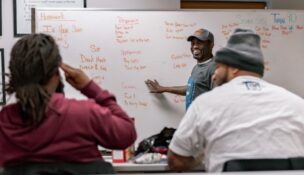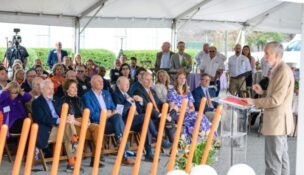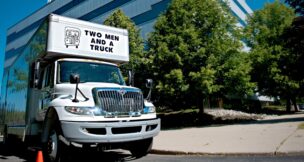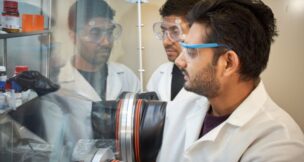Science-focused lab in Greenville paves the way for alternative learning
Krys Merryman //December 15, 2022//
Science-focused lab in Greenville paves the way for alternative learning
Krys Merryman //December 15, 2022//
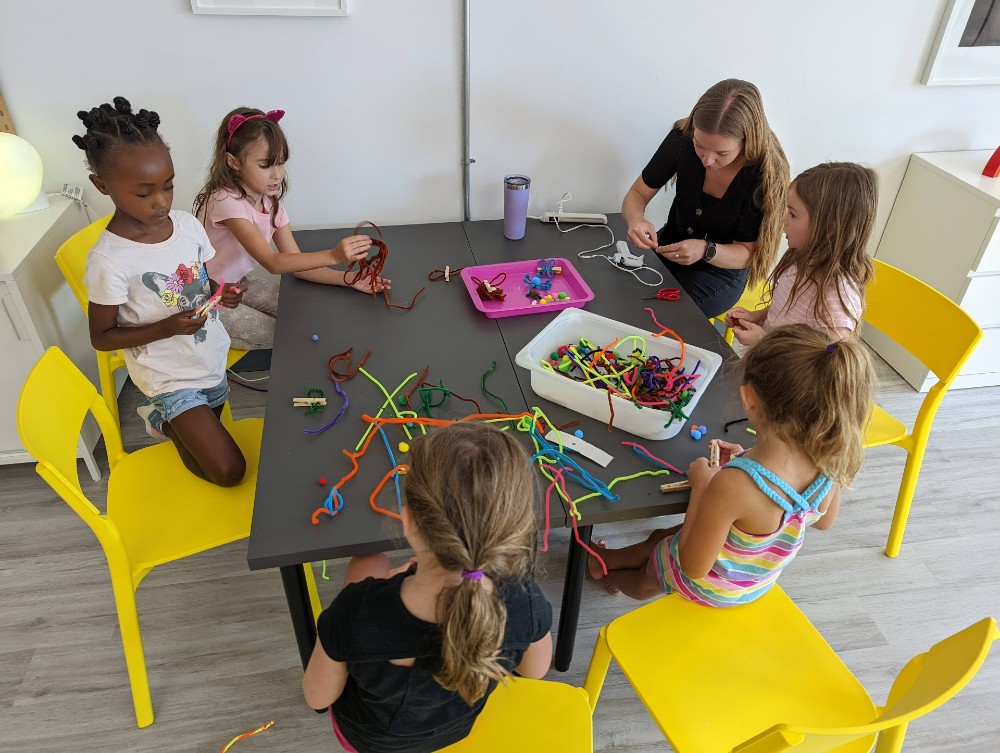 A science and project-based enrichment center was a vision that had sat on Preston Spratt’s computer since 2011. Other job opportunities had left that vision falling to the wayside — temporarily.
A science and project-based enrichment center was a vision that had sat on Preston Spratt’s computer since 2011. Other job opportunities had left that vision falling to the wayside — temporarily.
Spratt, founder of Sprattronics Learning Lab in Greenville and a former Greenville County Schools principal, decided last year was his opportunity see his vision to fruition.
“If I didn’t just go for it, it would probably still be sitting on my desk, just something I thought about sometimes,” Spratt said.
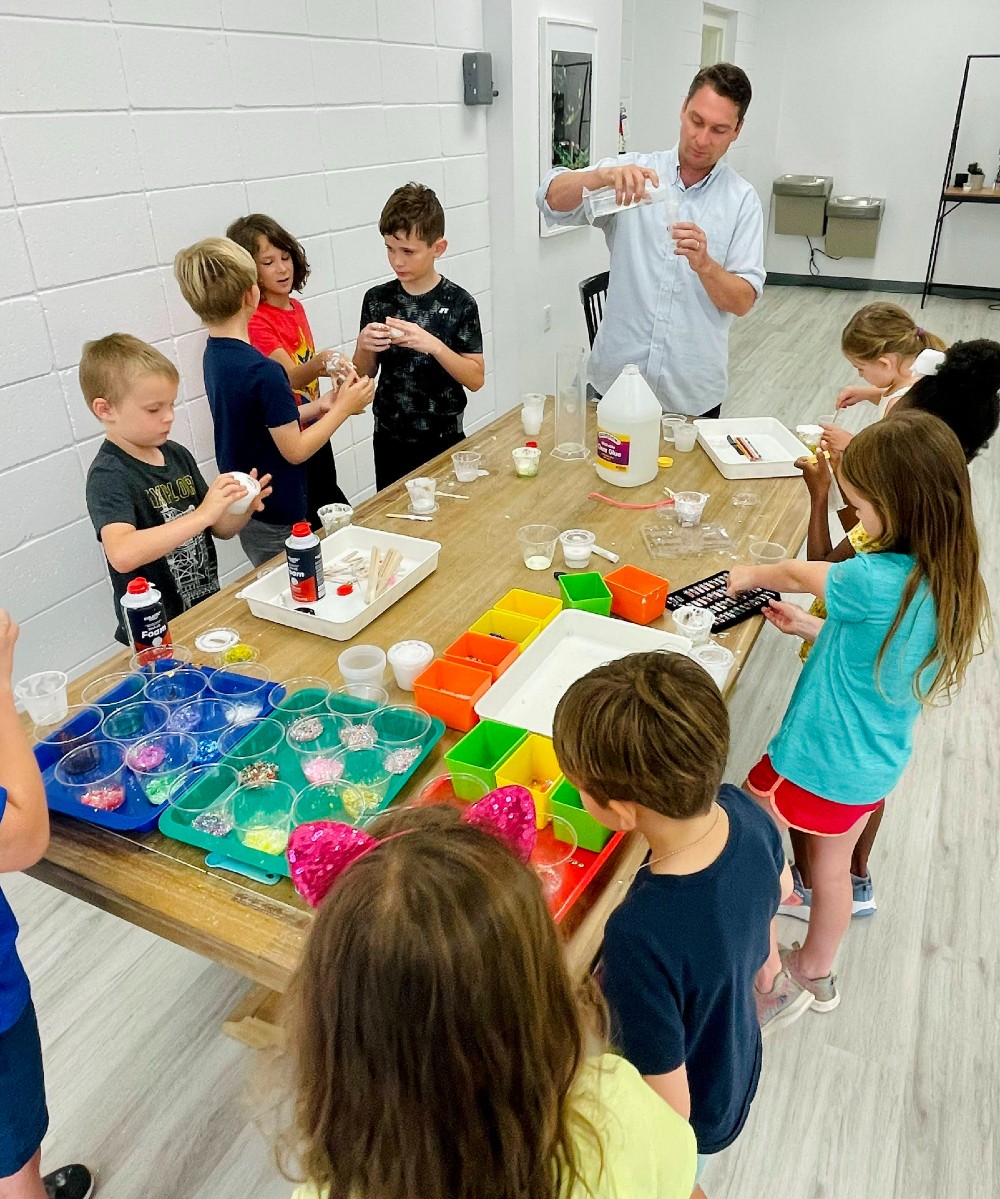 On July 11, the first students passed through the Sprattronics door. From making and launching rockets to Lego robotics, the learning lab strives to create a “premier co-learning space” where children can fall in love with learning and really embrace their curiosity by exploring it. Sprattronics is geared toward enhancing children’s critical thinking skills with hands-on and unique learning experiences, teaching them to become problem solvers by proposing real-life engineering challenges, as well as allowing them the opportunity for more creativity and time to build perseverance.
On July 11, the first students passed through the Sprattronics door. From making and launching rockets to Lego robotics, the learning lab strives to create a “premier co-learning space” where children can fall in love with learning and really embrace their curiosity by exploring it. Sprattronics is geared toward enhancing children’s critical thinking skills with hands-on and unique learning experiences, teaching them to become problem solvers by proposing real-life engineering challenges, as well as allowing them the opportunity for more creativity and time to build perseverance.
The VELA Education Fund, which supports everyday entrepreneurs who are boldly reimagining education, provided Sprattronics a $10,000 grant to get the learning lab started, Spratt said, in addition to partnerships with Furman University and the Hill Institute to figure out the business side of things and what it takes to run a learning lab.
“Any opportunity you get as an adult you need to be creative to solve it and to make your own course,” Spratt said. “So that is a big part of what we do here. We focus on problem-solving skills by giving students the freedom to come up with their own solutions to solve problems.”
Spratt said if students appear to have difficulty then facilitators intervene and ask questions to guide them or pull in another student as support to encourage collaboration.
“It’s very different than a traditional learning setting in that it’s student-led,” he added. “Children are capable of solving a lot more than we think.”
When Spratt left the public school system, he said he had a lot of “un-learning” to do.
“Public school teachers work so hard to accomplish goals they need met for the day and constantly being the show in the classroom, and you have to take a step back from that and allow the learning and exploration to happen naturally,” he added. “It sticks with the child so much better when they make a discovery themselves.”
Reports have shown a drop in public school enrollment across the nation of nearly 4% from 2020-2021, which equates to nearly 2 million children in just one school year, said Spratt. He has heard from some of those families, who believe there may be better options out there than what traditional schools can provide their children.
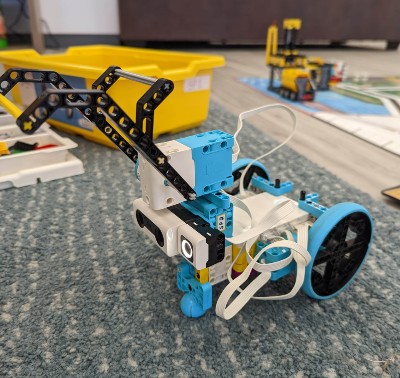 “We can take any student and maximize any given curriculum a specific parent has chosen for their child,” said Spratt. “We have traditional school families who come to us as an after-school program, because they want Lego robotics, they want to accelerate in math or even get a different reading program than what they are offered in school, and we can offer support with all of that.”
“We can take any student and maximize any given curriculum a specific parent has chosen for their child,” said Spratt. “We have traditional school families who come to us as an after-school program, because they want Lego robotics, they want to accelerate in math or even get a different reading program than what they are offered in school, and we can offer support with all of that.”
Sprattronics also sees many home-school students, Spratt added.
With approximately 40 regular, active members, the learning lab currently offers monthly memberships for ages 4-12.
As a former principal, Spratt said he believes he has all the tools for the success of the learning lab because of his deep understanding of what students need to be prepared for to succeed in addition to ways to accelerate while presenting multiple ways to teach the same topic.
“Parents are excited to invest in their child’s passions,” Spratt said.
In a traditional school setting, he said, so often you can narrow down why a child isn’t learning or having success as a student because either they don’t understand the material, or they aren’t invested in it. That should target how you approach a child with learning, he said.
“I think children here have a natural investment in learning,” Spratt added. “They are curious and want to explore, they are constantly doing things to learn and to figure out how the world works. Whenever we see the spark of learning happening, we pile on more books and activities to focus on what a specific child is really interested in. This helps them really find their passion and teach themselves about it.”
C





